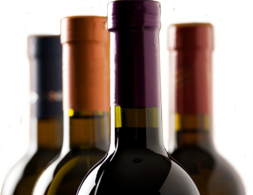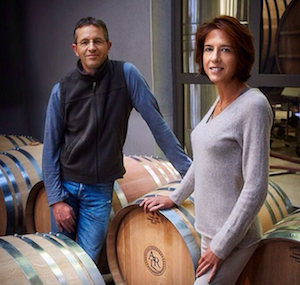12 IMPORTANT FACTS ABOUT CHAMPAGNE AR LENOBLE
1. AR Lenoble is one of the very rare producers in Champagne to be consistently family-owned throughout its entire history of nearly 100 years. Owners Anne and Antoine Malassagne are the
great-grandchildren of founder Armand-Raphaël Graser and the fourth generation of the family to run the company entirely by themselves.
AR Lenoble has been completely independent since it was first established nearly a century ago in 1920. No outside investors or shareholders of any kind are involved in the business. This allows us to guarantee the stability of our long-term, comprehensive strategy.
3. AR Lenoble believes in privileging the characteristic expression of fruit from our own vineyards:
-
10 hectares in the Grand Cru village of Chouilly for Chardonnay (pure chalk soils)
-
6 hectares in the Premier Cru village of Bisseuil for Pinot Noir (pure chalk soils)
-
2 hectares in the Marne Valley village of Damery for Meunier (clay and limestone soils)
4. The expression of Chouilly defines who we are and what we do at AR Lenoble. Chouilly is one of only 17 Grand Cru villages in Champagne and one of only 6 known for Chardonnay. AR Lenoble is one of few producers to use 100% Grand Cru Chardonnay in every single one of our wines.
5. Biodiversity is an extremely important part of our philosophy at AR Lenoble. We seek to create an environment which enables us to harvest the healthiest grapes possible. We have planted hedgerows to stabilise the soils. The vineyards are also home to a cluster of beehives from which the House makes a limited amount of honey each year. Bees are an important symbol to us as they literally preserve the natural equilibrium of the world.
6. The yields at AR Lenoble are significantly lower than the average yields in Champagne, year after year. We let the grass grow in our vineyards in order to reduce yields on purpose.
7. AR Lenoble uses exclusively the CUVEE from the first pressing to craft our wines, never the TAILLE from the second pressing.
8. All reserve wines are conserved in either small Burgundy barrels of 225 litres or 5000-litre foudres established along the lines of the solera or “perpetual blending” system.
9. The legal minimum for ageing in Champagne is established at 15 months but AR Lenoble never releases its wines until at least 3 years of ageing in the cellars followed by 3 additional months of post-disgorgement ageing.





